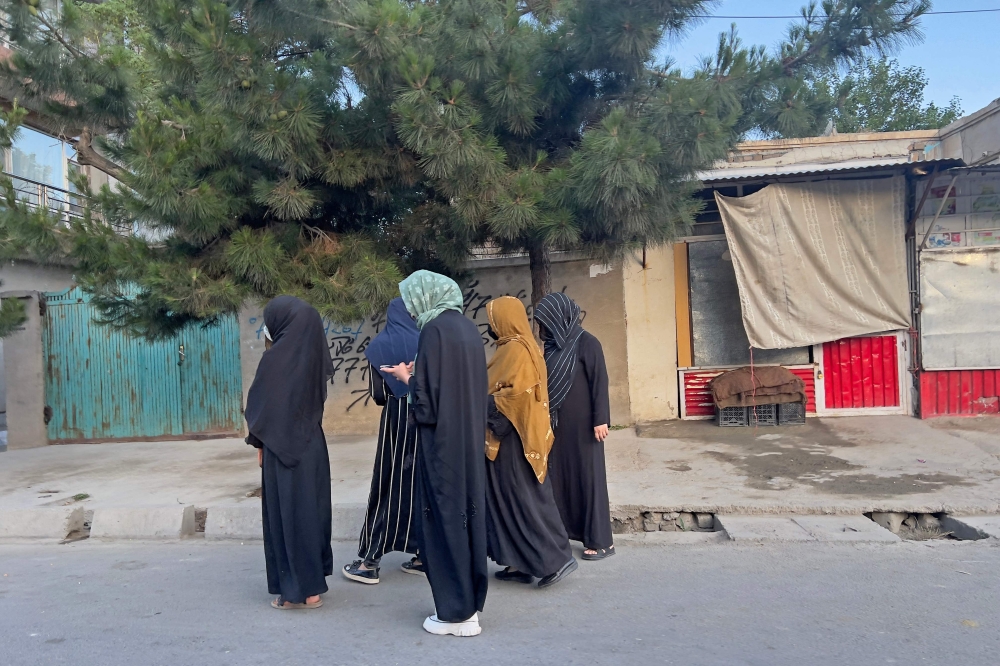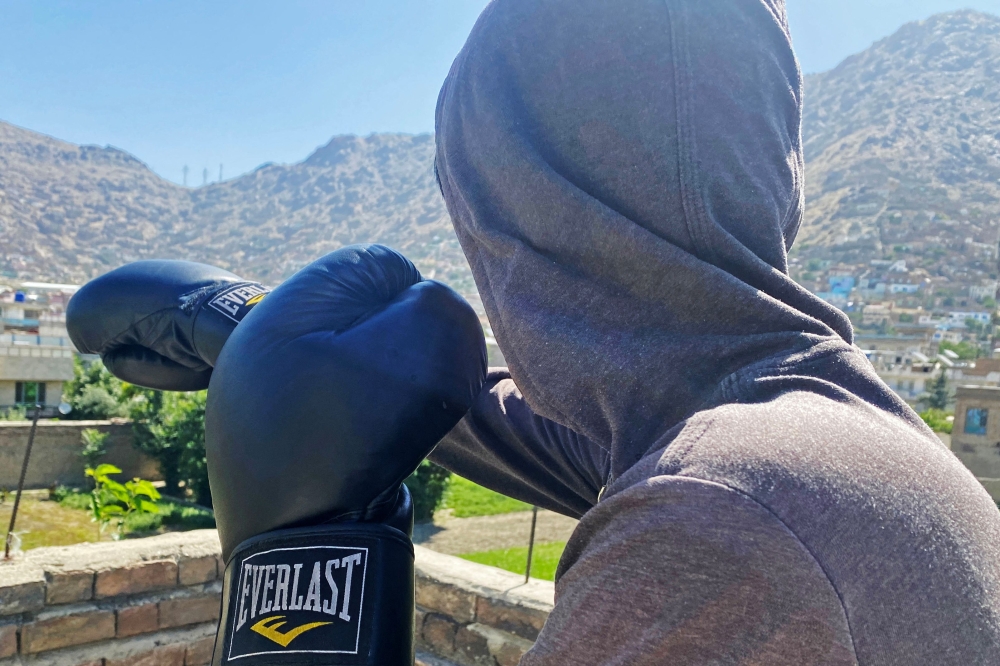KABUL, Sept. 16 — Most mornings after prayers, 25-year-old Sanah joins a few women from her neighborhood in Afghanistan’s capital, Kabul, for a walk along a main road before getting stuck, never jogging or getting too close to many Taliban. checkpoints.
They train in secret, not for competition, but for a modicum of health and peace of mind in a country where the Taliban government has stopped women from playing sports.
“We couldn’t go near the Taliban checkpoint because they said, ‘Why are you out of the house so early? Where are you going? Do you have to train, you don’t have to, so no,'” said Sanah, whose name has been changed — and all the women who was interviewed by AFP — for fear of reprisals.
Taliban authorities have implemented a strict interpretation of Islamic law, with women subject to restrictions labeled by the United Nations “gender apartheid”.
In November 2022, the Ministry of the Propagation of Virtues and Prevention of Vice announced that women were banned from parks and gyms because they did not comply with the dress code that ordered them to cover up.
Gyms have previously offered time slots for women, and while some informal women-only fitness clubs still exist, they are rare and low-profile.
Sanah and one of her friends, Latifah, who is middle-aged, used to walk in the big parks lined with trees in the city.
The last time Latifah went to the park near her house, shortly after they were permanently closed to women, she said she had to be removed, crying again while recalling the incident.
“The doctor told me to exercise more because I have high cholesterol and fatty liver, but the Taliban don’t let us exercise or go to the gym or walk (freely) outside,” he said.
Sanah wants to be a yoga teacher and guides the group through some aerobic exercises and meditation after the walk.
Pressing her thumb and forefinger together on her knee in the yellow morning light, away from prying eyes on the protected balcony, Sanah said softly, “Take a deep breath.”

In this photo taken on June 26, 2024, an Afghan woman walks along a street at dawn in Kabul. – AFP image
Boxing in secret
Forced out of their gym, Rayan and some of her fellow female boxers instead visit a friend’s house and use the little equipment they have to train in a society that has been hostile to women in the sport, but has now become draconian.
“We train less, but we never stop,” says the 19-year-old Rayan, watching a video on his phone where his fists fly in jabs and hooks – a bitter reminder of the avid boxer he once was.
Pulling back her hijab in a private garden in the Kabul heat, Bahar’s fellow former competitive boxer said the situation left her and other Afghan women stressed, tired and low.
“But when we box, it pushes all that for a moment. Even if we only train for a few minutes, it makes a big difference,” said the 20-year-old, henna from his recent wedding still staining his hands.
Her husband did not know she was still round.
Many female athletes fled Afghanistan after the Taliban took over.
Some still compete on the international stage, including in the recent Paris Olympics, but they come from outside the country and under the flag of the overthrown Republic.
The Taliban’s authority is not officially recognized by any country.
“In Afghanistan, women’s sports have been stopped. If women’s sports are not practiced, how can they enter the national team?” said Atal Mashwani, spokesman for the Taliban government’s sports directorate.

Afghan women train in secret, not for competition, but for a little health and peace of mind in a country where the Taliban government has stopped women from playing sports. – AFP image
‘Give them hope’
Banafsha, a black belt in the Chinese martial art of wushu, echoed the mixed feelings others have about Afghan women’s Olympic participation.
The Afghan team in Paris had three men and three women, while Afghan women also competed in the Refugee Team.
“It makes me happy that women have not given up, they are committed to their goals,” she said.
“But I’m also sad. Why can’t they go to the Olympics from within their own country?”
The former national competitor burned his uniform when the Taliban took power.
Today she can barely leave the house and struggles to motivate herself to exercise, feeling “desperate and heartbroken”.
Hasina Hussain Zada, who works for Free to Run, an organization focused on empowering women through sports, said while there are a number of online training videos and classes, they cannot replace personal training, being in a team or training outside. .
“We tell our participants to think of it as if it were Covid time,” said the 28-year-old, who fled to Canada after the Taliban took over.
She has been working since 2018 with a non-profit, which still supports women in Afghanistan in indoor training – albeit “carefully and secretly”.
“You don’t have to think about the Taliban, the rules … just think of it as if it were Covid time when everyone was doing exercises at home,” he said.
“We’re trying to change their mindset, we’re trying to give them hope.” — AFP
#Afghan #women #banned #sports #turn #secret #training #relief